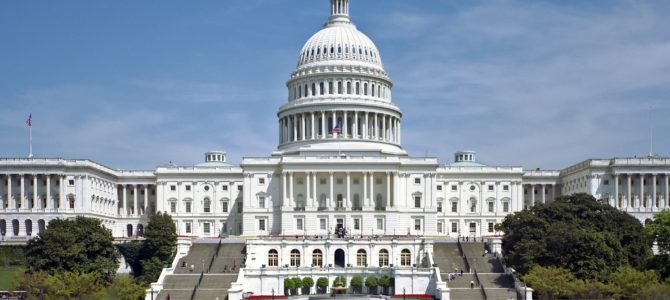
Procedural arguments are extraordinarily boring and completely ineffective and no one cares about them. I get it. “Process” lacks the kind of moral, cultural, or ideological appeal that animates Americans. No politician has ever won a modern election appealing to the voter’s love of neutral principles, and no one ever will.
It’s likely, in fact, that Barack Obama’s eight years have irreparably damaged process arguments. You can’t really expect the opposition party to play by the old rules once you’ve nuked them. And without fail, partisans convince themselves they’re going to be in power forever. They won’t be. The GOP won’t be either.
So perhaps it’s better to start thinking about “norms” — boy, that word has been ruined forever — not as a set of cherished republican principles, but rather a practical way to crush the future dreams of your most-hated political rivals. Think of process as a deterrence.
Despite Democrats demanding that Congress limit the proper executive powers of Donald Trump, both parties can aim to reestablish checks and balances that have been piddled away over the past six decades so they can reassert their proper role in American governance.
One of those powers is trade. During a long career in Washington, Sen. James Inhofe has voted for almost every major international trade agreement, and against renewing a “fast track” presidential trade authority when Bill Clinton was in the White House. This week he blocked an amendment that would have reigned in executive power on trade. Inhofe claims it would have interfered with a defense bill. Maybe that’s the case. But it seems unlikely.
The Constitution says Congress holds the power to “regulate Commerce with foreign Nations,” but the president is using a 1962 law that allows him to impose tariffs on things such as steel imports, because apparently making washing machines more expensive is in the national interest.
Most senators are hesitant to undermine their party’s president. Certainly this isn’t a new arrangement. But the erstwhile free traders of the GOP should imagine all the damage a progressive like Bernie Sanders could do with broad “national security” exceptions on trade.
The other power is that of treaties. If the North Korean denuclearization deal is as historic, genuine, and vital as Trump claims it will be, he has a responsibility to bring the final deal to Congress. Majority Leader Mitch McConnell says there’s “precedent” for administrations to make deals without the Senate, “but I do believe they’ll need to come to Congress in some form.” The precedent he’s talking about is the Obama administration and its habit of circumventing the Constitution.
We were told that Obama’s Paris agreement on climate was the most crucial international deal ever known to mankind — you’ll remember the world is now in imminent peril because we exited — yet it wasn’t important enough to be put through the traditional checks and balances of American governance. Global warming, claimed Obama at the time, “does not pause for partisan gridlock.”
The former president used the same argument for a number of his celebrated initiatives, including his creation of immigration law, of Obamacare subsidies, and of de facto international treaties. Should Trump, who can make a similar claim about gridlock — and does — implement his own Congress-free trade and immigration policies? If you believe tough political realities give you license to ignore process, then we can look forward to four-year intervals of perpetual governing chaos, which probably doesn’t comport with the Founders’ vision for a stable nation.
Take Obama’s Iran deal, which was not only propelled by a vast number of lies, it was brittle and unsustainable because he undertook it unilaterally. These factors are all related. It’s unlikely such a deal could have survived an open debate in Congress. The Iran deal would have needed genuine consensus to pass, and it would have been placed under a scrutiny the media refused to give it.
Of course, all of this isn’t the executive branch’s fault. Congress happily abdicates its responsibility on matters of war and trade all the time. The Obama administration could use the military in Libya and Syria (where the Trump administration followed suit) without proper authorization because a pliant Congress wants no part in a contentious and politically hazardous debate over war.
But the deal with North Korea needs a debate. If the parameters are really going to end a long-simmering and dangerous conflict, Congress can both solidify the agreement for the long term and ensure that it isn’t, like the Iran deal, the executive branch empowering a tyrannical state for little in return. These actions need oversight. Without it, we will continue to see the political instability that undermines American governance.








